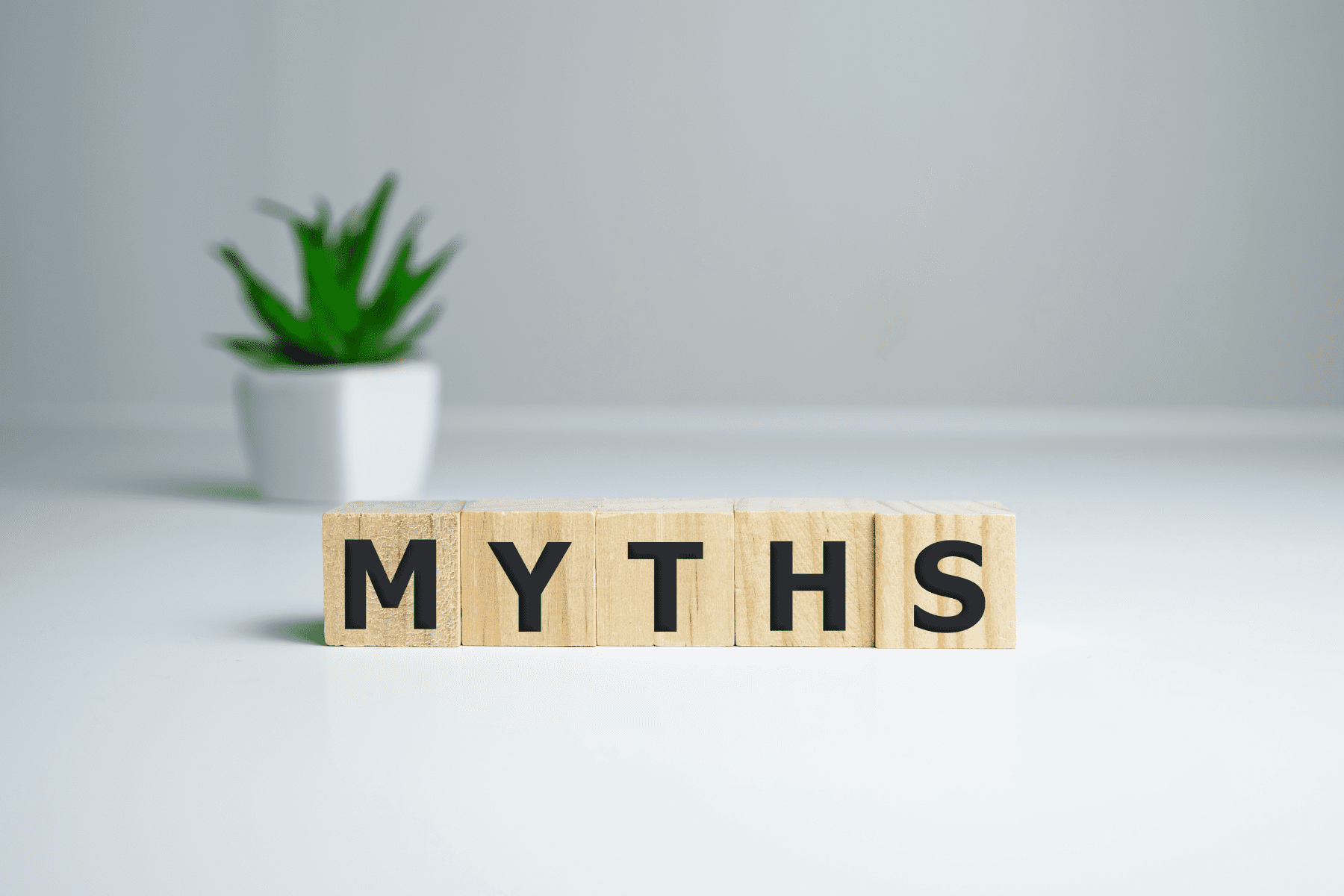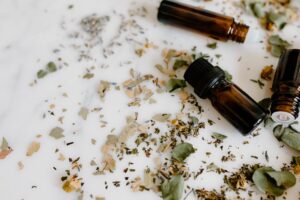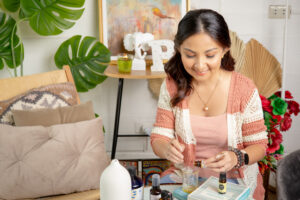
Essential oils can be found in the health arsenals of many moms nowadays. And why would it not be? The therapeutic benefits that these essential oils claim are very promising. As parents, we want to provide our children with the safest, and hopefully, more natural alternatives for their health.
With its proliferation, there have been many exaggerated claims for these oils, which you can find in Facebook groups and even in books. But how do you weed out the myths from the truth?
Today, let us dive into the most common myths you may encounter:
- All essential oils are safe to use regardless of how you use them because they are all-natural. Essential oils are beautiful products of nature, but they should be used with caution and care like anything in this world. While essential oils are amazing products of nature, they have already been ‘artificially’ concentrated through the extraction process. According to the Essential Oil Safety Masterclass, I attended with Robert Tisserand, author of Essential Oil Safety and the founder of Tisserand Institute, the concentration of the essential oil that you have in a bottle is something that you cannot find anywhere in nature. Because it is so concentrated, the power of these essential oils is highly potent, so we need to use them in minimal amounts and safe dilutions, mainly when applied topically on children and to those with hypersensitive skin.
- Essential oils will never go bad. This is simply not true. A lot of essential oils, especially citrus oils, would go rancid in a year. This is attributed to the process called oxidation, where oxygen can bond with your oil’s carbon atoms, altering its composition. Because it is already in its altered molecular state, your essential oil may not bring the benefits that you are expecting. One way to test this is to compare your newly-opened orange essential oil to your one-year-old orange oil. You will notice that your ‘aged’ oil does not smell vibrant anymore or may even have an odor that seems quite “off.” Oxidized oils can cause skin irritation.
- Essential oils will not cause skin irritation. Many claim that oils cannot cause allergies or skin irritation and attribute to detoxification when rashes appear. This has little to no truth in it. According to the National Association for Holistic Aromatherapy (NAHA), dermal or skin reactions that may occur with essential oils include irritation, sensitization, and phototoxicity/photosensitization. In addition, several oils are highly irritating to the skin, such as lemongrass, oregano, cinnamon bark, and clove to name a few.
- Essential oils are just like their source – they offer vitamins and minerals. Many people substitute their lemon with lemon oil in water, thinking they provide the same vitamins and minerals as the fruit. However, essential oils do not contain any of these nutrients. Essential oils are composed only of chemical components, and in the case of lemon essential oil, d-limonene with very different therapeutic benefits from that of Vitamin C.
- There is only one company that sells therapeutic-grade essential oils. Sad to say, there is no international regulating body for the quality of essential oils in the market. It is, thus, necessary to know your source and the practices they engage in. My own benchmark is the reputation of the brand that I am using. I joined several aromatherapy groups to check out different brands aromatherapists use. I also check if they follow the guidelines set by organizations such as NAHA or AIA; both promote the safe use of essential oils. I also am inclined towards companies that issue a GC/MS report. GC/MS or gas chromatography/mass spectrometry is a report that shows the different chemical constituents of an essential oil and their ranges. The bottom line is to find the company that resonates with you. Test their oil (do not hoard yet) and see if they work for you!
- You have to have ALL essential oils. Well, if you are a hoarder and you can afford it, why not? But a lot of essential oils can be a substitute for one another. For example, citrus oils that contain d-limonene have similar therapeutic actions; linalool that can be found in Lavender (Lavandula angustifolia) can be found in Ho Wood and Rosewood, and so on. Study your essential oils so that you can maximize using them.
Essential oils are here to stay, and if you intend to use them regularly to promote your family’s vital energy, it is crucial to know how you can use them effectively yet safely. Learn more about essential oils on my Youtube channel or through different resources on this blog.






